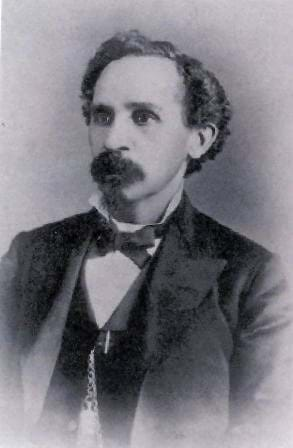
Jesus Urquides

Jesús Urquides
Born: 18 January 1833, Sonora, Mexico
Died: 26 April 1928, Boise, Idaho
Born in Sonora, Mexico, Jesus Urquides became a naturalized American citizen in 1860. In 1850, at age 17, he began a pack-train operation in California, gradually expanding to a six-state area. He carried food, clothing, and other supplies to mining operations large and small throughout the western United States.
In 1901, Urquides was the first packer to carry supplies to the newly discovered Thunder Mountain Mining District in the Salmon River Mountains of present-day Valley County. Many years prior, he was also one of the first to take the hazardous trip through the Sierra Nevada Mountains to the Carson City and Virginia City, Nevada mines, and one of the first to pack into what is now Montana.
One of Urquides's most challenging ventures was packing 10,000 pounds of metal cable into the Yellow Jacket Mine for construction of a tramway out of Challis. It was necessary to get this cable to the mine without a break, for a splice would have been too dangerous for use on the tram. He coiled the cable and loaded it onto a string of 35 mules arranged in three rows for the 70-mile trip up and down steep mountain terrain. Several times a mule would slip and tumble down the mountain side, taking the entire train along. This meant righting the mules and repacking, but he was ultimately successful in making the delivery.
In 1877, Urquides was contracted to bring supplies and ammunition to General Oliver O. Howard's federal troops during the Nez Percé Native American War. The following year, during the Bannock War, several of his mules were killed and he narrowly escaped with his life.
Urquides settled in Boise in the late 1860s. He returned to California in 1878 to marry Adelaida Carreras. The family home was built at 115 Main St, on land that Urquides had inherited from friend Antonio de Ocampo, which was initially purchased in 1873. Later, a corral for his dozens of pack mules, as well as a storehouse for merchandise was constructed which served as a logistical base to transport goods to isolated areas throughout Idaho.
Urquides built approximately 30 small one-room buildings for use by his employees, mostly Mexican-born at the time. This became known as Urquides' Spanish Village. After Urquides’ death, the cabins accommodated men of all backgrounds who were down on their luck and was known as a “bachelor’s haven.” Many of these men remained in the small cabins until the death of Urquides’ daughter Maria Dolores “Lola” Binnard in 1965. They were then condemned by the city and torn down in the early 1970s.
Of the six Urquides children, only three lived to adulthood. He, along with most of his family, are buried in Pioneer Cemetery, a short distance from their home.
Send a Message to Parks and Rec
For other after hours park related emergencies (i.e. irrigation issues, restrooms), please call (208) 489-6640.